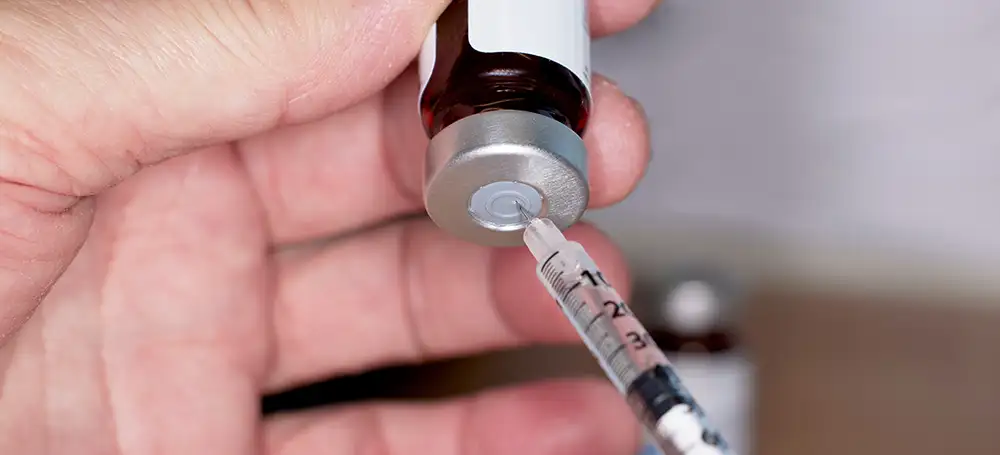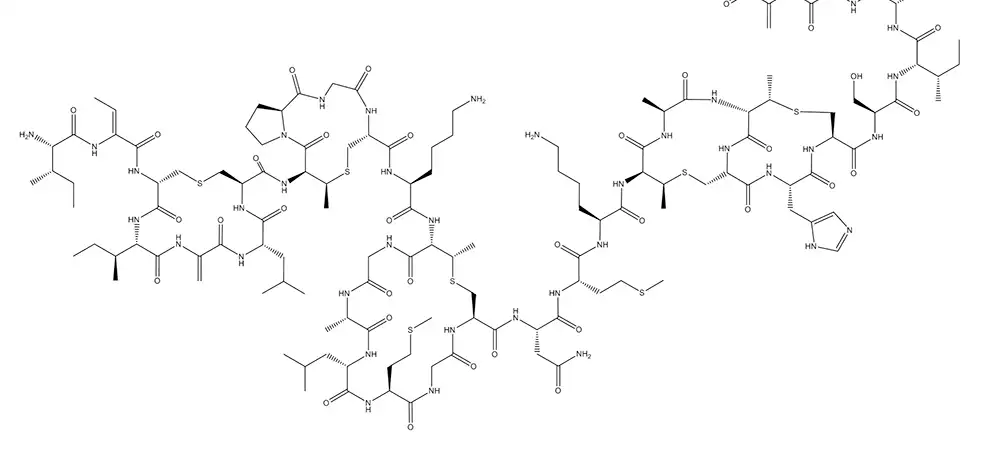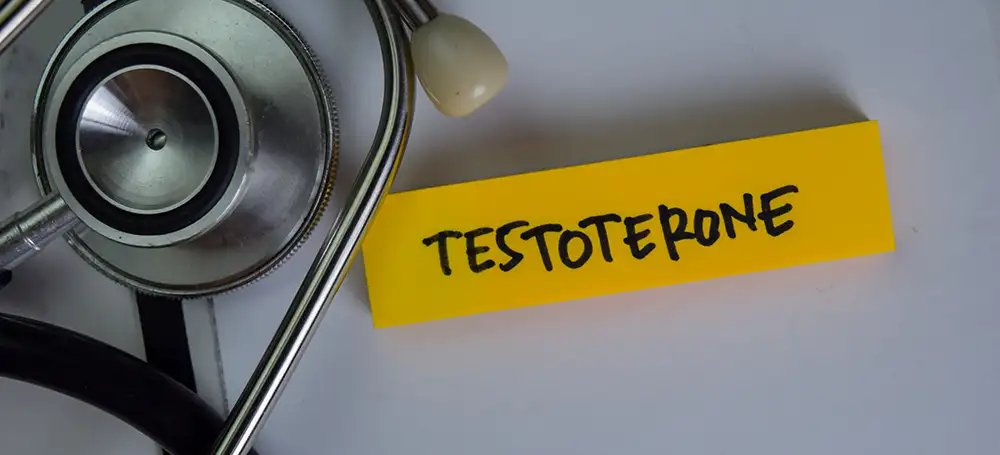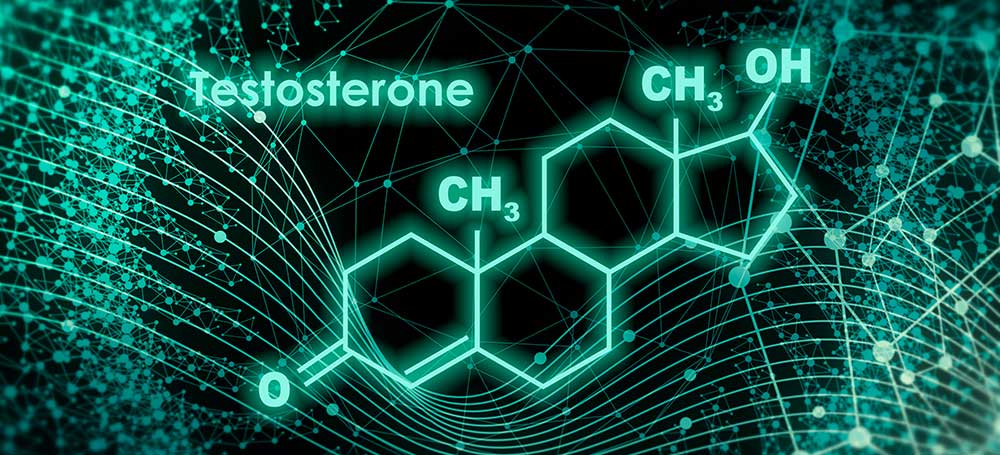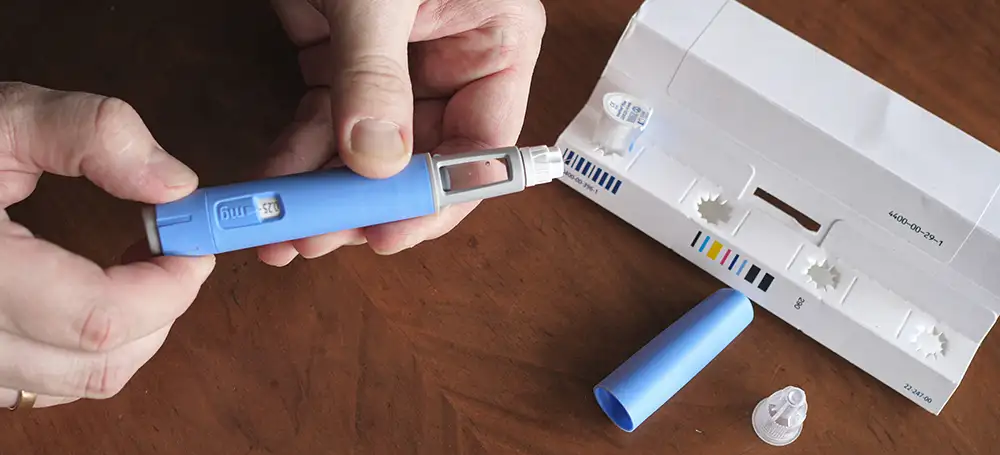If you’ve ever wondered whether what you eat has an effect on your testosterone levels, we’ve got some answers for you — though science hasn’t answered all the questions yet. Understanding the connection between what you eat and how your body functions is important for overall health, and it may point you in the right direction to boosting your testosterone.
The Effect of Diet on Testosterone
There’s definitely a correlation between being overweight and decreased testosterone levels. The connection between specific diets or individual foods and testosterone levels, however, is not so straightforward.
Some studies, though, do show a clear link between what nutritionists call a pro-inflammatory diet and lowered testosterone levels. In this case, the prefix “pro” doesn’t indicate a good thing. Rather, a pro-inflammatory diet is one that’s high in saturated fats and refined carbohydrates. A 2021 research study out of Sichuan University found that men eating a pro-inflammatory have lower testosterone levels than men eating an anti-inflammatory diet, with a chance of testosterone deficiency that’s almost 30% higher than those on the anti-inflammatory diet.
The link between inflammation and lowered testosterone levels has also been studied. A 2018 study out of Australia shows a clear connection, with a pro-inflammatory diet showing correlation to weight gain and obesity. So yes, if you’re overweight, losing weight and getting in shape should raise your testosterone levels (though how much depends on a lot of factors).
Keto Diets and Testosterone
The high-fat, low-carbohydrate style of eating best exemplified by the keto diet also shows promise in raising testosterone just a bit. A 2020 research study shows that men eating a high-fat diet increased testosterone levels significantly, while those eating a low-fat diet saw their testosterone levels decline. A similar study conducted in Chicago in 2020 confirmed these findings, as did a 2019 study of Type 2 diabetics at the University of Kufa, Iraq. Also paralleling these findings was a study from the University of Worcester that found that men following a vegetarian diet show far lower testosterone readings.
More study is needed to understand the relationship between keto diets and testosterone. Men who eat a keto diet tend to see their cholesterol levels go up, and cholesterol is an important element for the production of testosterone, so that’s one possible link. It’s important to remember that you have to consider your whole body’s health, not just your testosterone levels, when choosing how you eat. Those who eat a lot of meat and very little plant-based food may find themselves at greater risk of heart disease, Type 2 diabetes and colorectal cancer.
Vegetarian Diets and Testosterone
Men on a plant-based diet tend to show testosterone levels that run about 150 points lower than men who get their protein from meat. Given that the normal range of testosterone falls between 300 and 1,000 nanograms per deciliter (ng/dL), a 150-ng difference can be significant. However, men whose natural testosterone level is at the high end of that scale may find that the benefits of a vegetarian diet outweigh the drop in testosterone. That’s because a plant-based diet makes it easier to lose weight and lessens the risk of heart disease or Type 2 diabetes. In addition, some men wishing to become fathers find that a plant-based diet improves sperm quality.
Obesity and Testosterone
Men who are obese or overweight are more likely to suffer from low testosterone levels, along with their accompanying symptoms of fatigue and low sex drive. Typically, they see their testosterone levels rise somewhat simply by losing weight, no matter what type of diet they pursue.
Foods That May Lower Testosterone Levels
While research is limited regarding the effect of individual foods on testosterone levels, some people have experienced drops in testosterone if they eat certain foods, especially to excess.
Soy
Soy is rich in isoflavonoids, an estrogenic compound that’s structurally similar to estradiol, a type of estrogen. While the phytoestrogens in soy may affect estrogen levels, it’s not yet clear that they have a profound effect on testosterone levels. One study has linked a vegan diet heavy in soy with a drop in testosterone levels, but this research hasn’t been duplicated or confirmed. While there’s no strong evidence linking a soy-based diet to hormonal change, it’s also probably best not to eat foods like tofu, soybeans, miso or soy milk in very large quantities.
Alcohol
The links between alcohol use and decreases in testosterone are pretty clear. A 2017 study out of the University of Louisville showed that heavy drinking and drinking over long periods of time results in a drop in testosterone levels. Overuse of alcohol damages cells in the liver and in the testes, the site of testosterone production. As a result, testosterone metabolism is affected. Binge drinking also appears to decrease testosterone levels in the short-term, though not permanently.
Mint and Licorice
While research involving human subjects is still needed, a 2017 study showed that the menthol ingredient in mint reduces testosterone levels. A similar study in 2018 on rats found the same effect from licorice. However, until human studies are performed, there’s not yet any reason to give up your favorite movie theater candies.
Bread
A 2018 study in Taiwan made a connection between a diet rich in pastries and bread and lowered testosterone levels. However, more work needs to be done to tease out the real culprit behind the drop in testosterone, as too much dairy and not enough green vegetables were also potentially implicated.
Trans Fats
Remember how a high-fat diet, such as keto, may help increase testosterone? It turns out that the type of fat you’re eating may be key here. A 2017 study conducted in Spain shows that if you’re eating trans fats, you might be harming your testosterone levels. Trans fats, which include margarine and shortening, increase LDL (“bad”) cholesterol and appear to lower testosterone. The good news? Eating omega-3 fatty acids (the type found in salmon, flaxseed and some nuts) improves testicular function.
Nutrients That May Boost Testosterone (or Keep It From Decreasing)
While some nutrients and foods may deplete your testosterone levels, others show potential in increasing them. Among these are:
- Fenugreek: This herb used in Indian cooking boosts testosterone levels when taken as a supplement.
- Zinc: Blood levels of zinc and testosterone show a correlation, with lowered intake of zinc related to lowered testosterone. There’s no evidence, though, that taking zinc supplements will increase testosterone levels. Eat red meat, beans, whole grains, chicken, oysters and nuts to boost your zinc intake.
- Selenium: Men taking selenium supplements show a significant boost to their testosterone levels. Have your selenium levels checked before starting any supplements, though. If your selenium levels are already high, supplements may increase your risk of prostate cancer. You can ingest selenium naturally through increasing your intake of grains, dairy products, eggs, Brazil nuts, organ meats and seafood.
Tips for Building Healthy Nutritional Habits
Maybe as you read about the nutrients that may help (or hinder) your body’s testosterone production, you’re inspired to make some nutritional changes. Changing your diet is one of the most fundamental alterations you can make to your lifestyle, as it touches your daily routine everywhere you go. Whether you’re trying to go keto, you want to add specific nutrients to your diet or you just want to lose weight (and thereby encourage your body’s testosterone production), you can increase your chances of success by following these tips:
- Decide which habits you want to change — and be specific. Let’s say you want to switch to a keto diet. You need to understand what day-to-day choices this entails. If you go out for drinks after work, what will you order? When a wave of the munchies hits you on a weekend, what foods will you already have on hand to keep you on the straight and narrow? How strict do you want to be, and where might you cut yourself a little slack? And (most important!) what are you trying to accomplish and how will you measure your accomplishments? Will you weigh yourself every day? Get your testosterone levels checked every few months? Write down your goals and expectations to make them clear in your own mind.
- Make plans that support your eating habits. You might want to cook ahead on the weekends so that when you come home from work and you’re hungry, you don’t just give up and drive through a fast food place. Perhaps you’ll look at your weekly calendar and plan where you’ll eat lunch each day, checking out the menus to make smart choices that align with your goals.
- Take measurements and keep records. If you’re going to weigh yourself daily, get a weight-tracking app so you can keep track of every ounce lost. Plan for whatever blood work you might need, whether it’s checking testosterone levels or blood sugar.
- Change gradually. The temptation is always to leap into a new endeavor feet first, going all in from the get-go. But that may not be the most effective way to make a change. Try instead to institute your lifestyle changes a little at a time so that you can form new habits in a healthy and productive way. For example, if you decide to adopt a keto diet, you might want to start by giving up pasta for a week or two. Once you’re used to this and you’ve developed a habit of ordering or cooking something else, you can add a new habit to the mix.
It’s also very important to realize that no matter how much you change your diet and no matter how healthy your nutritional habits become, they will only go so far if one of your primary goals is to boost your testosterone levels.
If Your Testosterone Levels Are Clinically Low, Can Diet Alone Make a Difference? (Spoiler Alert: No)
If your testosterone levels fall below 300 ng/dL, you can officially be diagnosed as having testosterone deficiency. In that case, changing your diet really won’t do enough to help bring your testosterone levels back into the normal range. Sure, eating healthy is always wise, and if your levels hover near the low end of the normal range, following an anti-inflammatory diet, such as keto, may help give you the slight boost you need.
But for many men, that change in diet is far from sufficient. If your testosterone is chronically low, it’s time to talk to your men’s health clinic in Boston about testosterone replacement therapy. You may not even be aware that some of the symptoms you’ve experienced are connected to one another. Your fatigue, weight gain, insomnia, erectile dysfunction, mental fog and low sex drive could all be symptoms of testosterone deficiency.
If that’s the case, we’re ready at Boston Vitality to provide the safe, discreet treatment you need. Contact us today to make an appointment to get your testosterone levels checked as a first step on the path back to vigor and wellness.




